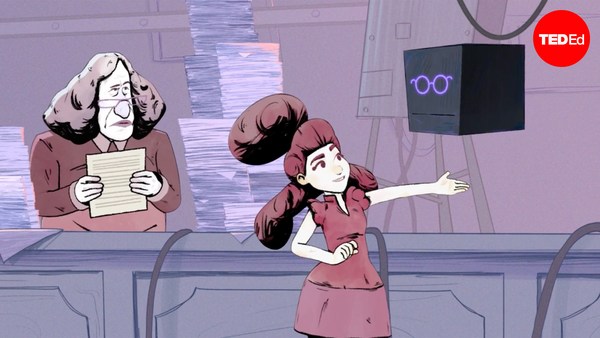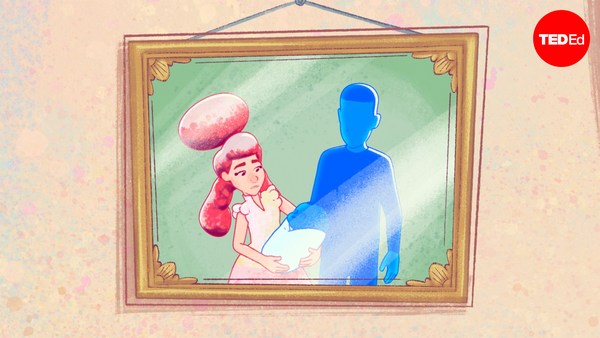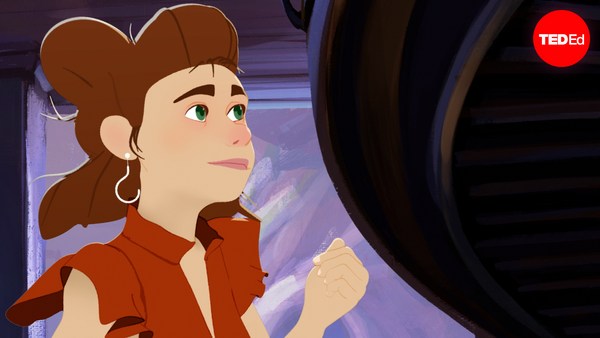What would the future look like if we got rid of one of the deadliest species on Earth? Hear me out: I think sometimes we need to play God.
Good morning!
Does this mean you’ve decided to start work again?
Well, I was thinking. If I come back, I want to expand my responsibilities.
Don’t tell me you’re about to ask for a raise after just a few months of less-than-stellar performance.
Actually, I was going to say I want to organize Wilhelmina Heliotrope’s archives—
No.
...So we can open them to the public?
No!
Um, okay, well, I guess I won’t be coming back then.
I guess not.
Right, back to sending resumes it is then.
(Slap!)
Mosquitoes are the worst. I wish we could just get rid of them. I mean, can we? Clearly, I’m not the first person to think of this. And yet... all our efforts to get rid of them have failed. And even with vaccines and medicines and bed nets, they're still infecting tons of people with diseases, especially malaria, which still kills well over half a million people every year. Oh! But there is a new approach that would eradicate mosquitoes by genetically modifying them so their female offspring are infertile. But hasn't genetic modification been around for decades? Oh, I see. New gene editing tools like CRISPR can dramatically increase the chance that the genetic modification gets passed on, until eventually the mosquito population shrinks down to nothing. Why haven't we done this? I guess completely getting rid of mosquitoes might cause problems for other species?
Ah, sublime! There are thousands of species of mosquitoes, and only a few of them carry the malaria parasite. I am not particular about which mosquitoes I eat, and I’ve never met an insect-eater who feels otherwise. If it’s ecological damage you’re worried about, I certainly prefer this gene drive idea to those pesticides you humans are always spraying around.
But— can we really be sure that the gene drive won’t jump to other mosquito species and kill them off, too?
You’re asking me?
Oh... I see... It’s not like a virus— the gene drive can only spread when a mosquito reproduces and only to its offspring. And honestly, given the alternative is hundreds of thousands of people, most of them really little kids dying every year, it’s hard to see how it could go wrong in a way that’s worse than the status quo.
I think we need to do this. But where to start?
Wherever you start, don’t expect the gene drive to stay there. The rest of us have no regard for those imaginary walls you humans love so much... what are they called? Ah, yes. Borders.
Okay, I see your point. So we need a committee with members from every country that would be impacted. And from the teams of scientists working on this... and from the international organizations that should be involved in monitoring and regulation.
(Yawns)
I mean, I can make that happen. Once the committee is assembled and everyone’s in agreement, we’re ready to start the gene drive by releasing tens of thousands of genetically modified mosquitoes into the wild. Within five years, almost all malaria-carrying mosquitoes in Africa have been eradicated. This success gets people excited about other uses for the technology. Because it spreads through reproduction, it works best in species with short lifespans that reproduce quickly— so, bugs! Agricultural pests are the next target.
How do you like Colombia?
I can thrive in many different environments and the local cuisine is delicious.
Okay, well, don't get too attached to that particular cuisine. That's a screwworm. And the committee is considering a gene drive to eliminate them. Screwworms eat mammals like cows and sheep and deer alive.
Very well. This looks equally delectable.
Screwworms are a huge problem for farmers.
Yes, spare a thought for the profit margins! Never mind the suffering of the animals being eaten alive.
I didn’t say that! But the economic considerations are important too, you know. And they're not as separate from suffering as you might think.
The screwworm gene drive is another success. As the technology advances, the committee considers applying it to the notoriously difficult challenge of controlling invasive species.
Ah, what an agreeable climate.
So, this is a little awkward, but we’re here about a gene drive to eradicate invasive chameleons from Maui.
Excuse me?
They’re threatening native snails.
And who introduced us to Hawaii, hmm? Humans!
So then don’t humans have an obligation to try to fix things?
I don’t understand why you were fine with getting rid of screwworms, but now you need to protect the snails.
It’s not just about the snails, it’s about the whole ecosystem. We're weighing the benefits and harms to all species and trying to do what's best for the most living things.
If you care about all living things, then I don’t understand why it matters if species are invasive or not. Look at these happy, well-fed chameleons. It’s not their fault they need to eat.
Okay, I think you’re getting things confused.
Are you sure you're not confused? May I suggest getting rid of humans? That's what's best for most of us on Earth.
Well, it wouldn’t make any sense to try to use a gene drive to get rid of humans. It would take thousands of years, and it would be easy to stop.
The Maui gene drive is such a success that the committee votes to run a similar one in Florida. It starts out well, but the gene drive spread unintentionally through the pet trade. Then the native chameleon populations in other parts of the world start declining.
The committee decides not to consider any more gene drives to control invasive species.
But that’s a cop out! There are still plenty of invasive species that threaten ecosystem collapse, spread disease, or divert resources that could be used to improve people’s lives. And we haven't been able to get rid of them in other ways. It's good to avoid making mistakes, obviously, but we're not doing that by refusing to even try. We’re just opening ourselves to the possibility of making a different kind of mistake— mistakes of inaction.
The more I think about it, the more I'm convinced we're just as responsible for the consequences of what we choose not to do as we are for what we do.
I know you said no to making Wilhelmina’s— Dr. Heliotrope’s— papers open to the public. And I know she didn’t necessarily want her work published, either.
Exactly.
But I think she was wrong about keeping her ideas private. It’s up to us— I mean up to you— to make those decisions as well as you can. Her work could inspire someone to change the world for the better. And we can’t know she’d still want to keep them private today.
You can’t. I actually knew her.
You did?
Intimately.
Oh, well, in that case, don’t you want to keep her legacy alive?
I can tell you mean well, although your demeanor is a bit aggravating. If you come back to work and attend to all your main responsibilities, I will consider your proposal.
Deal!
Return this to the shelves for me.


